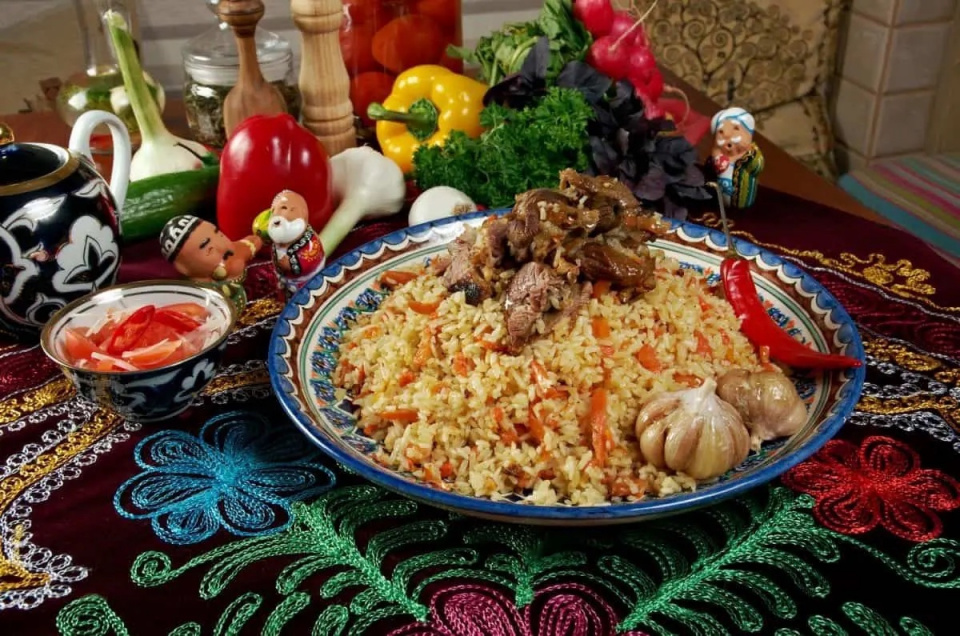The Sunday Project

Bread of Life for One Another
Nineteenth Sunday in Ordinary Time |
By Eilis

Elijah went a day’s journey into the desert, until he came to a broom tree and sat beneath it. He prayed for death saying: “This is enough, O LORD! Take my life, for I am no better than my fathers.” He lay down and fell asleep under the broom tree, but then an angel touched him and ordered him to get up and eat. Elijah looked and there at his head was a hearth cake and a jug of water. After he ate and drank, he lay down again, but the angel of the LORD came back a second time, touched him, and ordered, “Get up and eat, else the journey will be too long for you!” He got up, ate, and drank; then strengthened by that food, he walked forty days and forty nights to the mountain of God, Horeb.
Brothers and sisters: Do not grieve the Holy Spirit of God, with which you were sealed for the day of redemption. All bitterness, fury, anger, shouting, and reviling must be removed from you, along with all malice. And be kind to one another, compassionate, forgiving one another as God has forgiven you in Christ. So be imitators of God, as beloved children, and live in love, as Christ loved us and handed himself over for us as a sacrificial offering to God for a fragrant aroma.
The Jews murmured about Jesus because he said, “I am the bread that came down from heaven, ” and they said, “Is this not Jesus, the son of Joseph? Do we not know his father and mother? Then how can he say, ‘I have come down from heaven’?” Jesus answered and said to them, “Stop murmuring among yourselves. No one can come to me unless the Father who sent me draw him, and I will raise him on the last day. It is written in the prophets: They shall all be taught by God. Everyone who listens to my Father and learns from him comes to me. Not that anyone has seen the Father except the one who is from God; he has seen the Father. Amen, amen, I say to you, whoever believes has eternal life. I am the bread of life. Your ancestors ate the manna in the desert, but they died; this is the bread that comes down from heaven so that one may eat it and not die. I am the living bread that came down from heaven; whoever eats this bread will live forever; and the bread that I will give is my flesh for the life of the world.”
About 10 years ago, I was working as a case manager at a refugee resettlement agency when a family reunification case landed on my desk. The family, from Uzbekistan, had been separated for more than 10 years due to war and persecution. In two weeks, the mother and two children would be reunited with their husband and father in the United States.
Their reunion was a jubilant celebration at the airport. The following day, I arrived at the family's home and was greeted by the kids. Their mother had prepared a traditional Uzbek feast for us to share. Through her husband, she told me, “when you eat together, you’re family.”
As I reflect on today’s readings, I think that my client’s understanding about the sacredness of sharing a meal together illustrates the message for us. In the first reading, we hear the angels implore Elijah to “get up and eat, the journey will be too long for you.” And in the Gospel, Jesus tells us “I am the bread of life.”
Yet, so often, we are Elijah crying out “This is enough, O Lord.” We live in a time when the Eucharist is politicized and people try to reserve it only for the select few who meet “the criteria.” We are tired of being denied the bread of life by officials who try to determine who is worthy of receiving the Bread of Life. We are tired of living in fear while wondering if we will still be welcomed to the table if the truth of our lives or our beliefs is made public. We are tired of the sin of racism that perpetuates our churches and institutions.
What we fail to realize is that there are angels all around us who welcome us to their tables and say ”eat, the journey will be too long for you if you do not have bread to eat.” Their tables are not reserved for the few, but set for all of us. They know that the simple act of sharing a meal is a sacred time that makes us family—that connects us to one another and gives us strength for our own journeys so that we can continue to share the Bread of Life with the world. I challenge each of us to be the bread of life for one another by helping each other stand up when the church and world says otherwise and inviting each other to our sacred tables where Eucharist is shared.